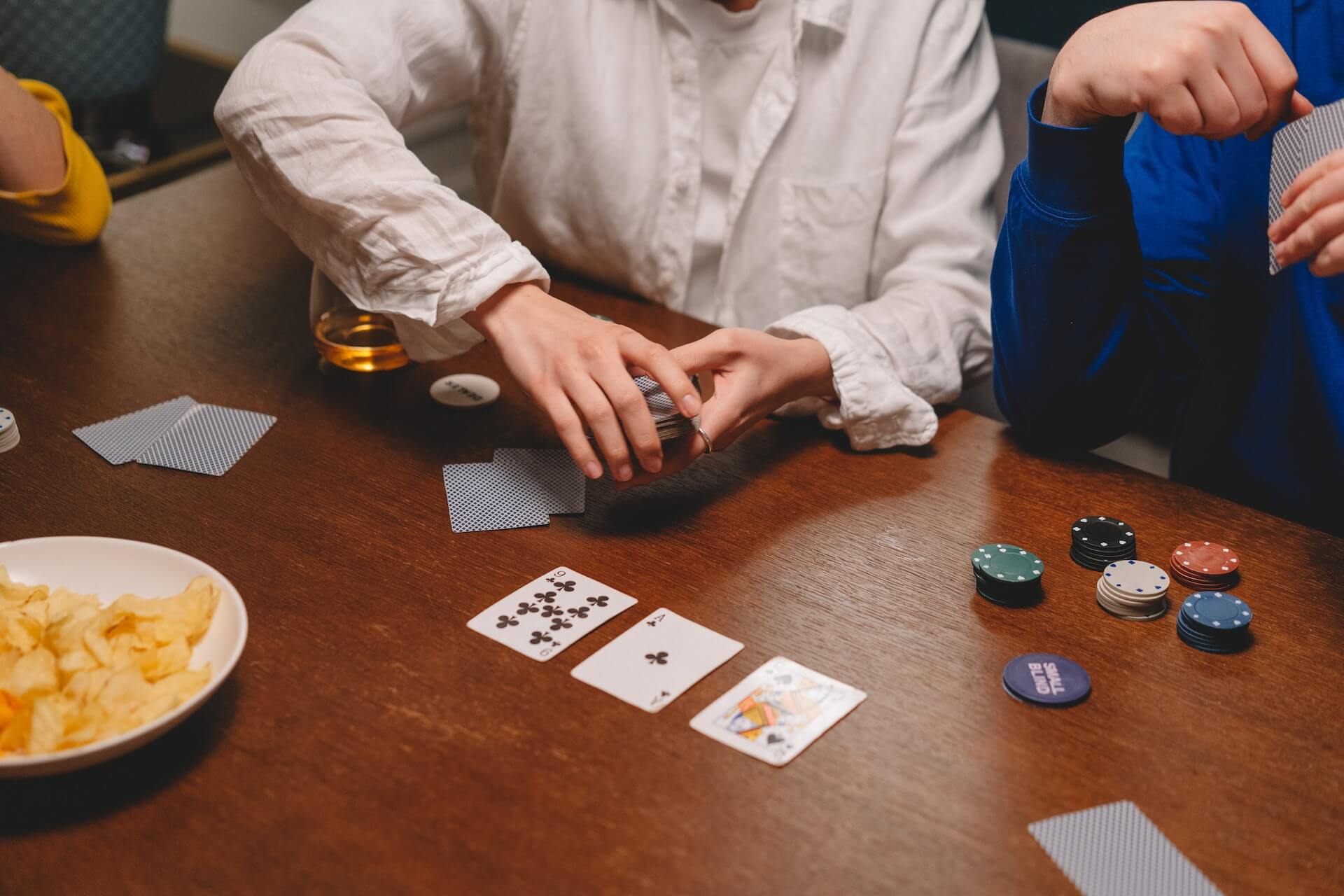Physical Address
304 North Cardinal St.
Dorchester Center, MA 02124
Physical Address
304 North Cardinal St.
Dorchester Center, MA 02124

Vielfältige Sprachkurse für Alltag und Beruf zur Vermittlung allgemeiner
Vielfältige Sprachkurse für Alltag und Beruf zur Vermittlung allgemeiner

Do you want to avoid traditional language learning methods that leave you bored and unchallenged? Have you ever considered incorporating gambling strategies into your language education to spice things up?
The high-stakes vocabulary offers a fresh approach to language learning that combines the excitement of gambling with the practicality of expanding your vocabulary. With high-stakes tongue, learners are encouraged to make educated guesses based on context clues and word roots.
This strategy improves their ability to infer meaning and enhances their critical thinking skills, preparing them for real-world situations where guessing may be necessary. By introducing elements of risk and reward, learners stay engaged and motivated throughout the process, leading to more effective retention and application of new words in daily life.
So why stick to mundane memorization techniques when you can add some thrill to your language journey with high-stakes vocabulary?
High-stakes vocabulary is a critical component of language education. It refers to using complex and challenging words commonly found in standardized tests, such as the SAT or GRE, which students must pass for college admission.
By incorporating high-stakes vocabulary into language learning, educators can help students improve their reading comprehension skills, expand their knowledge base, and increase their chances of excelling in these exams.
Using high-stakes vocabulary in standardized testing has been shown to have several benefits. Firstly, it helps students develop better problem-solving skills by requiring them to analyze text critically.
Secondly, it provides an excellent opportunity for students to learn new words and phrases they may not encounter daily.
Finally, it can boost confidence levels among test-takers who feel more prepared going into exams with the necessary tools for success. The psychological impact of learning high-stakes vocabulary cannot be overstated; its inclusion can make all the difference between passing or failing an exam.
As discussed in the previous section, high-stakes vocabulary can benefit language learners. However, incorporating gambling strategies into language education may seem daunting. But fear not; with some creativity and planning, it is possible to make learning new words an engaging and exciting experience.
Role-playing scenarios and interactive games are two effective methods for incorporating gambling strategies into language learning.
In role-playing scenarios, students can take on different personas and use new vocabulary in context while interacting with one another. This allows them to practice using new words in realistic situations, making it more likely that they will remember them later.
Interactive games can also encourage students to engage with new vocabulary. For example, teachers could create a crossword puzzle or word search using challenging words from the curriculum. By turning this into a competition where students earn points for each correctly solved clue, they become invested in mastering the new vocabulary.
After learning about word roots and using context clues to guess the meanings of unknown words, another helpful strategy is word association.
This technique involves linking a new vocabulary word with something you already know or understand. For example, suppose you are trying to remember the meaning of ‘gregarious,’ which means sociable or outgoing. In that case, you might associate it with someone named Greg, who is always friendly and talkative.
Mnemonic devices are also helpful tools for remembering new vocabulary words. These are memory aids that help learners connect further information with familiar concepts to facilitate retention.
One popular mnemonic device is creating an acronym or phrase from the first letter of each word in a list of related terms. Technology such as interactive games can make these strategies more engaging for students and reinforce their understanding of high-stakes vocabulary.
In addition to expanding one’s vocabulary, high-stakes vocabulary can improve critical thinking skills. Analyzing texts and building word associations are two key strategies to help students enhance their essential thinking abilities. By examining the meaning of words in context, students learn how language is used to convey deeper meanings and ideas.
To build these skills, teachers should encourage students to read challenging texts and discuss them in groups. Students can analyze the author’s use of language and examine how specific words add layers of meaning to a text.
Additionally, instructors can assign exercises that require students to create word associations based on particular themes or topics. These activities help students develop connections between different concepts and deepen their understanding of how language works.
By incorporating high-stakes vocabulary into language education, educators increase student engagement and promote higher-order thinking skills essential for success in academic pursuits and beyond.
In the next section, we will explore methods for retaining and applying new words in daily life without feeling overwhelmed or intimidated by complex terminology.
As discussed in the previous section, incorporating high-stakes vocabulary into language education can significantly improve critical thinking skills. However, more than simply learning new words is required. Retaining and applying these words in daily life is equally important.
One effective method for retaining new vocabulary is through flashcard techniques. Flashcards provide a quick and easy way to review and reinforce knowledge of new words. Additionally, using mnemonic devices such as acronyms or visualization techniques can help make memorization more enjoyable and better ingrained in long-term memory.
For example, creating an acronym for a set of related words or imagining a vivid scene associated with each term can make recall more effortless and efficient. By consistently reviewing flashcards and utilizing mnemonic devices, learners are more likely to retain newly acquired vocabulary beyond just passing a test or quiz.
Incorporating high-stakes vocabulary into language education is a powerful tool for improving critical thinking skills; however, retention and practical application are essential for lasting success. Through the use of flashcard techniques and mnemonic devices, learners can not only learn new words but also ensure that they remain accessible in their daily lives.
With consistent effort and dedication to mastering high-stakes vocabulary, individuals can communicate effectively with precision and confidence.
Regarding vocabulary games and role-playing activities in language education, incorporating gambling strategies can be a fun and effective way to engage learners.
By utilizing techniques such as increasing the stakes of a game or using random chance elements, students are more likely to stay focused and motivated while improving their vocabularies.
These activities also provide opportunities for the real-life application of language skills and promote healthy competition among peers.
Incorporating gambling strategies into language education is an innovative approach that can improve student learning outcomes.
How can incorporating high-stakes vocabulary into language education improve overall proficiency?
Vocabulary retention is a critical factor in learning a new language, but keeping students engaged and motivated can be challenging.
Educators can increase student motivation by implementing gambling strategies such as setting up high-stakes scenarios or using engagement techniques like games and competitions while reducing cognitive load.
These methods allow for more effective language acquisition by keeping students focused on the task at hand and encouraging them to retain more information long-term.
So, how exactly do these strategies work? In this article about High Stakes Vocabulary: Incorporating Gambling Strategies into Language Education, let’s explore further.
When it comes to using gambling strategies in language learning, there are potential downsides that should be considered.
Ethical concerns may arise when students feel pressured to take risks to improve their vocabulary.
Additionally, effectiveness limitations may exist for those who need help with the concept of chance or need a basic understanding of probability.
Cultural sensitivity is also essential, as some cultures do not view gambling as acceptable.
Finally, student motivation could decrease if they perceive these strategies as irrelevant or unengaging.
Educators must weigh the benefits and drawbacks before incorporating high-stakes vocabulary into our curriculum.
Regarding language learning, age-appropriate techniques, and differentiated instruction are critical factors in determining the effectiveness of any given method.
So, can high-stakes vocabulary be effective for learners of all ages and levels? The answer lies in tailoring these gambling strategies to fit each learner’s needs and abilities.
By incorporating risk-taking and reward-based incentives into their language education, students may find themselves more engaged and motivated to learn.
However, it is essential to consider potential downsides and ensure these techniques are used responsibly and ethically.
With careful planning and implementation, high-stakes vocabulary has the potential to be a valuable tool for educators seeking innovative ways to teach language skills.
Innovative assessment and personalized learning are crucial when evaluating students’ progress in high-stakes vocabulary acquisition.
Teachers must implement strategies that cater to each student’s needs, whether beginner or advanced learners.
It’s essential for teachers to not only focus on memorizing words but also incorporate gamification techniques that make learning fun and engaging.
By doing so, teachers can track their students’ progress more effectively and identify areas where additional support is needed.
With these innovative approaches, language education becomes an exciting journey rather than just another mundane task.
In conclusion, incorporating gambling strategies into language education can be a fun and effective way to improve language proficiency. Introducing high-stakes vocabulary pushes students out of their comfort zones and encourages them to take risks with new words and phrases. This improves their confidence in using the language and expands their ability to communicate effectively.
However, it is essential for teachers to carefully consider the potential downsides of using gambling strategies in language learning. Some students may feel overwhelmed or anxious about the risk involved, which could negatively impact their motivation to learn.
Educators must balance challenging their students and ensuring they feel supported and safe in the classroom.
Overall, high-stakes vocabulary can be an effective tool for learners of all ages and levels if it is implemented thoughtfully by experienced educators who understand how to assess student progress and provide targeted support where needed. With this approach, students will have a greater chance of achieving true fluency in any given language.